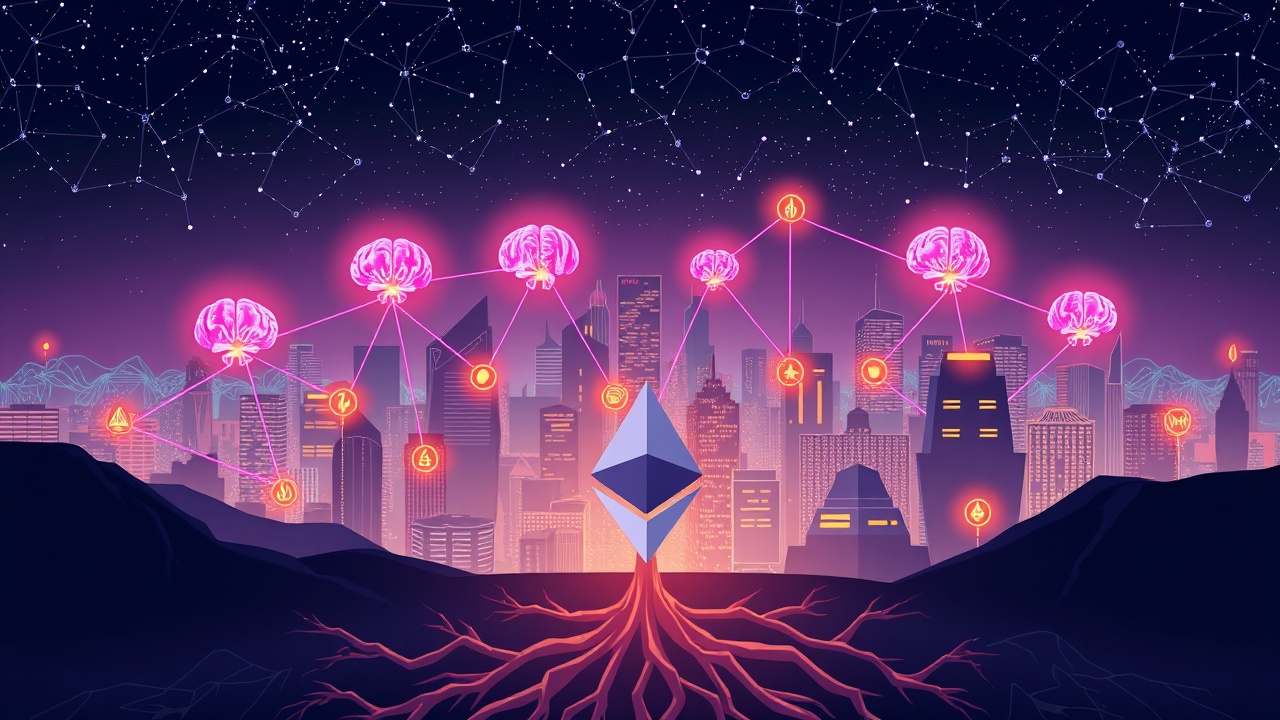The Intersection of AI and Blockchain
The integration of artificial intelligence (AI) with blockchain technology represents a promising avenue for overcoming significant hurdles currently faced by AI ecosystems. Eric Connor, a notable former Ethereum developer, spoke on this intersection on April 15, highlighting the transformative potential of Ethereum amid the swift advancements in AI.
Challenges in AI Development
Connor pointed out several critical issues plaguing AI, including a lack of transparency in model operations, the centralized nature of data storage, and substantial privacy concerns. These challenges, he stated, open a realm of possibilities for Ethereum to leverage its capabilities effectively.
Ethereum’s blockchain technology is designed to offer transparency via verifiable smart contracts, decentralization to mitigate the influence of tech monopolies, and a framework that encourages aligned incentives through its economic structures. Furthermore, the platform’s infrastructure includes a micropayment system essential for smooth transactions.
Smart Contracts and Transparency
“Smart contracts serve as a vital tool that can document the AI model training processes and the datasets used, directly tackling the notorious ‘black box’ dilemma commonly associated with AI technologies.”
Nevertheless, Connor expressed that leading AI firms might resist the push for more open models due to their entrenched reliance on maintaining secrecy and control over proprietary algorithms for financial gain. Nonetheless, as societal demands for transparency, fairness, and security intensify, Ethereum stands out as a compelling option for addressing these needs.
Fostering Ethical AI Development
He further emphasized that Ethereum’s foundational principles of openness, collaboration, and reduced trust dependencies are critical for fostering ethical AI development. By crafting innovative tools and real-life applications, Ethereum has the potential to inspire AI developers to explore decentralized frameworks, which could lead to a significant shift beyond merely financial applications. This perspective was echoed earlier in the year by Zain Jaffer, co-founder of Vungle, who described the decentralization of AI as the forthcoming frontier for cryptocurrencies.
Relevance of Ethereum in AI
Connor, who stepped back from the Ethereum community earlier this year to pursue his interests in AI amid internal leadership challenges, noted that Ethereum’s contributions are becoming increasingly relevant in the field of agentic AI—a developing technology where autonomous AI agents are capable of task performance, decision-making, and adaptation. The Ethereum blockchain is well-suited for such applications, providing access to real-time data, genuine ownership of digital assets, and the functionality to execute transactions through smart contracts.
Pioneering Projects
The scope of this integration is evidenced by various pioneering projects such as Luna, an autonomous influencer operating its own on-chain portfolio; Vika, an AI agent focusing on cryptocurrency market analysis; and Botto, a decentralized artist that creates NFTs based on community selections. Additionally, initiatives like Bankr and HeyAnon are enhancing user interactions with blockchain technology by incorporating conversational interfaces, allowing users to manage their wallets and conduct transactions effortlessly through chat commands.




